In the world of recycling and sustainability, “downcycling” is a term that comes up often. But, not everyone understands what it means or why it matters. Downcycling plays a significant role in the lifecycle of materials and products, influencing both the environment and resource usage. This post will explore what downcycling is, its implications, and how we can prevent it to promote a more sustainable future.
Read More ➥Category: Plastic Free
bookmark_borderWhat is Wishcycling? (And How To Avoid It)
Hey earth muffins! Recycling is an essential practice that helps conserve resources and reduce waste. However, an increasingly common phenomenon known as “wishcycling” has emerged, undermining the effectiveness of recycling efforts. To avoid wishcycling and contribute to more effective recycling practices, here are a few things to keep in mind:
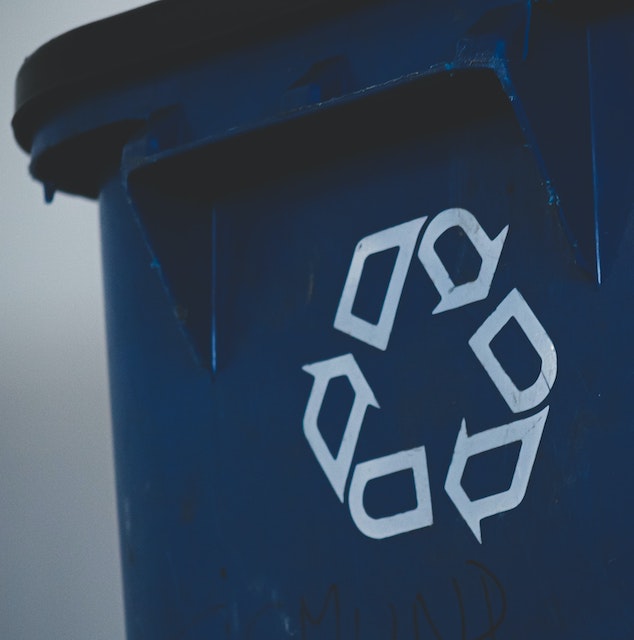
So, What is “Wishcycling”?
“Wishcycling” refers to the act of placing items in the recycling bin with the hope that they will be recycled, even if they are not accepted or recyclable in your local recycling program. While the intention behind wishcycling is often positive, it is definitely the way to NOT recycle. It can lead to contamination, higher costs, and ultimately undermine recycling systems. It should be avoided at all costs!
Read More ➥bookmark_border5 Ways to Fight Against the “Throwaway” Culture
Hey earth muffins! Let’s face it; we live in what can only be described as a “throwaway culture”. Things are made to last for a short amount of time and produced in large quantities… This type of culture is obviously not good for the planet for many reason – but how can you fight back against the norms? Keep reading for 5 easy ways to go against this throwaway culture!
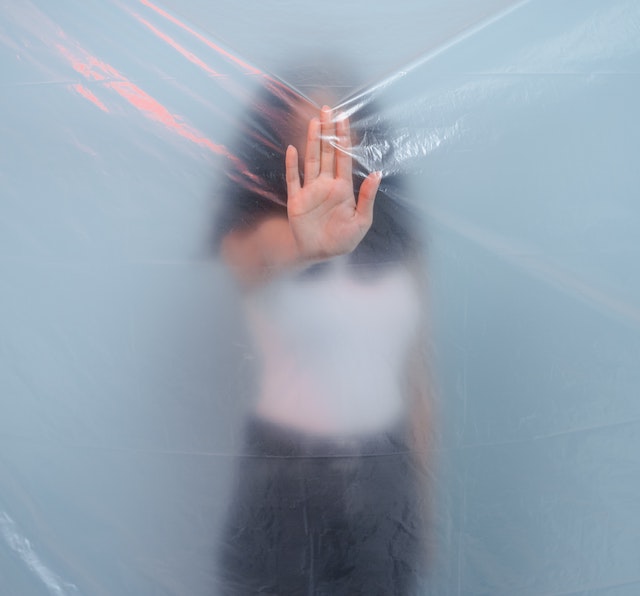
1. Follow the waste hierarchy and reduce what you throw away!
The waste hierarchy is a hierarchy for a reason. You should focus most of your time at the top of the pyramid: reduce, reuse, repurpose, etc. Recycle (and then waste) are at the bottom because you should try your best to avoid them at all cost. To go against our single-use culture, try to throw away as little as you can. This is the complete opposite of what most people in our world do, but it isn’t a totally impossible goal.
Read More ➥bookmark_borderNo Tox Life Dish Block: A Worthy Zero Waste Swap??
Hey earth muffins! When I started my eco journey all the way back in 2018, I started a list of sustainable products I wanted to try. The No Tox Life dish washing block is one of the items on this list (affiliate link)! 😊 I recently purchased it through the Tera app and have been trying it out. If you are looking to make a simple swap in your kitchen for a more zero waste home, keep reading for a full review of this product!
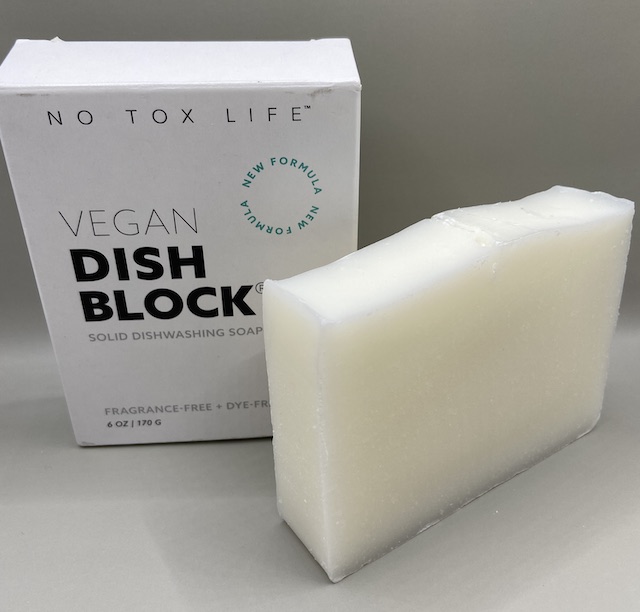
What I Love About the No Tox Life Dish Block
First up, I (obviously) love that this is a sustainable dish bar. Instead of using dish soap in a plastic container, you can opt for this bar instead. Bars are much better than bottles for the planet; I absolutely love that this is an easy zero waste swap. The dish block comes in a recyclable box which makes it plastic-free as well!
Read More ➥bookmark_borderEasy Ways to Upcycle Old Oui Yogurt Containers!
Hey earth muffins! I recently decided to try Oui yogurts for the first time… These are made by Yoplait and are “french-style”, which means the yogurt is prepared in the container it is sold in. The reason I wanted to give them a try is because they come in glass jars! 😊 This is a great alternative to buying individually packaged yogurts in plastic, and they are quite tasty too! Once you eat the yogurt, there are endless possibilities on how to upcycle Oui yogurt containers… Let’s jump into my favorite options!
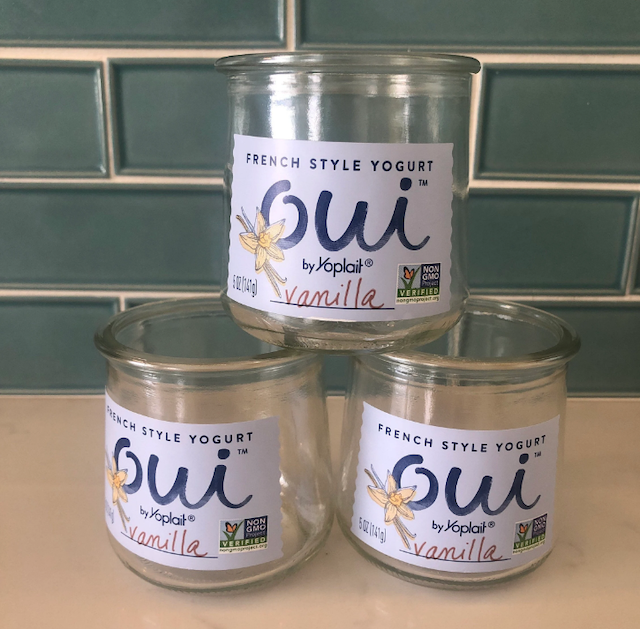
~Use them as containers for a packed lunch.
The first way to reuse these yogurt jars is to add them to your reusable container collection. These are perfect for packing a zero waste lunch! While they don’t have lids, I use a small piece of beeswax wrap to keep it airtight. If you make your own yogurt or buy a bulk yogurt tub, these are perfect for packing individual portions. 😍
Read More ➥bookmark_borderIs BPA Free Plastic Actually Safe?
Hey earth muffins! Whether we like it or not, plastic is everywhere. I’ve been seeing things labeled as “BPA free” a lot more recently, which got me interested in the health around BPA and plastics. From doing some research, I thought it was a fascinating thing to write about… So let’s jump into a quick discussion on BPA and BPA-free plastics!

What is BPA?
BPA, also known as Bisphenol A, is a chemical used to make certain plastics since the mid-1900s. The plastics that often have traces of this substance are used in containers to store food and drinks (like water bottles). Now you might be asking, why is it bad? I’m not a scientist myself, but there is tons of evidence out there about BPA seeping right into the food and drink stored in those containers. Exposure to certain amounts of BPA can lead to numerous health effects on the brains of infants and kids. Not only that, studies show it can also lead to increased blood pressure, type 2 diabetes and cardiovascular disease. While the U.S. Food and Drug Administration (FDA) says it is safe in low levels, I personally would rather not expose myself to those risks.
Read More ➥bookmark_borderUnderstanding The Recycling Symbol (and Why It SUCKS!)
Hey earth muffins! Happy Plastic Free July! 🌎 🎉 This month is a great time to focus on plastic-free living to reduce your consumption of plastics in your daily life. I personally have a goal to reduce plastics as much as possible; but, I know that I will still encounter some plastics this month and beyond. So will you! To prevent these from ending up in the landfill, it is important to recycle anything that you can. Today, I will be sharing everything you need to know about the recycling symbol.

What is the Recycling Symbol?
I am 99.99% sure that you have seen this symbol before. ♻️ It seems to be everywhere in the eco community and is automatically associated with anything to do with recycling. The three arrows of the symbol represent the three steps of the recycle process:
Read More ➥bookmark_borderHow to Host a Plastic Free Morning Tea
Hey earth muffins! Plastic Free July starts tomorrow – will you be participating this year?? One of the popular activities to do during July is to host a plastic free morning tea. ☕ According to the PFJ website, these teas are “a tangible and delicious way to get others involved and start having conversations around plastic free ideas, sharing solutions and making a real difference together”. I mean, who wouldn’t love to have a tea party?! In today’s post, I will be sharing my top tips for how you can host a plastic free morning tea during PFJ!
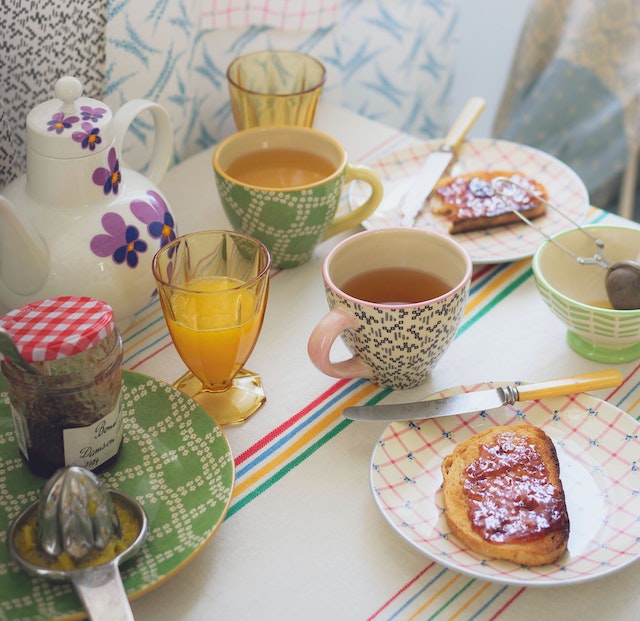
1. Make sure you have zero waste tea and/or coffee!
Tea (and talking about plastic use) is obviously the central part of this event… So make sure you have zero waste coffee and tea! I’ve written a whole post on how to reduce plastic when brewing your hot beverages. My top tip is to buy yourself a stainless steel tea infuser. There is no need for tea bags when you can opt for loose leaf tea instead!
Read More ➥